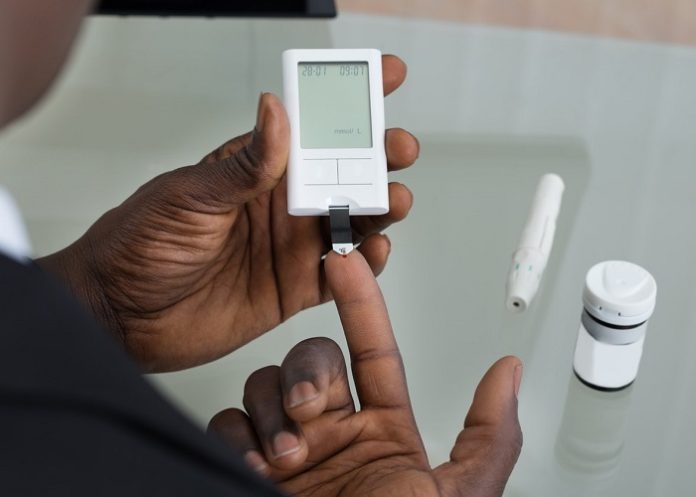Researchers have suggested their recent discovery could change how type 1 diabetes is diagnosed and managed in people of African descent, with the study findings being described as “a wake-up call”.
In type 1 diabetes, the insulin-producing beta cells in the pancreas stop working in childhood or young adulthood. The disease has always been attributed to an autoimmune process in which the immune system produces so-called autoantibodies that mistakenly attack the pancreas.
But studying 894 volunteers in Cameroon, Uganda and South Africa with youth-onset diabetes, the researchers found that 65% of them did not have the usual auto-antibodies typically seen in people with type 1 diabetes in other parts of the world, reports Reuters.
Nor did they have the genes that usually predispose to the disease, or features consistent with other known types of diabetes, such as type 2 and malnutrition-related diabetes.
“This suggests that many young people in this region have a different form of type 1 diabetes altogether and that it is not autoimmune in origin,” said study leader Dana Dabelea of the University of Colorado Anschutz Medical Campus.
Comparing the data with studies in the US, the researchers found that 15% of black Americans diagnosed with type 1 diabetes had a form of the disease similar to the patients in sub-Saharan Africa, characterised by negative autoantibodies and a low genetic risk score, according to their report in The Lancet Diabetes and Endocrinology.
White Americans with T1D, however, showed the typical autoimmune pattern, and even if they didn’t have detectable autoantibodies, their genetics still pointed to autoimmune diabetes.
Clinicians in parts of Africa had long suspected that some children diagnosed with type 1 diabetes did not quite fit the standard profile, the researchers said.
Most studies to date have focused on white Western populations, overlooking regional and genetic diversity in disease presentation, they noted.
“These findings are a wake-up call,” said study co-leader Professor Moffat Nyirenda of the London School of Hygiene & Tropical Medicine Uganda Research Unit.
“They challenge our assumptions about type 1 diabetes and show that the disease may present differently in African children and adolescents. We urgently need to deepen our investigations into the biological and environmental factors driving this form of diabetes and ensure our diagnostic and treatment approaches are fit for purpose in African settings.”
Study details
Non-autoimmune, insulin-deficient diabetes in children and young adults in Africa: evidence from the Young-Onset Diabetes in sub-Saharan Africa (YODA) cross-sectional study
Jean Claude Katte, Steven Squires, Mesmin Dehayem et al.
Published in The Lancet on 21 July 2025
Summary
Background
Studies of type 1 diabetes in sub-Saharan Africa have suggested that the clinical phenotype might differ from phenotypes reported elsewhere. We aimed to establish whether type 1 diabetes diagnosed in children and young adults in three countries across sub-Saharan Africa is of autoimmune origin.
Methods
In this observational, cross-sectional study, we identified participants without obesity from outpatient clinics in government and private hospitals in Cameroon, Uganda, and South Africa who were of self-reported black African ethnicity with young-onset (age <30 years), insulin-treated, clinically diagnosed type 1 diabetes. We measured islet autoantibodies to GADA, IA-2A, and ZnT8A, and calculated a genetic risk score (GRS) for type 1 diabetes, which we compared with control populations without diabetes derived from the Uganda Genome Resource databank and other studies. Endogenous insulin secretion was assessed using plasma C-peptide. We compared findings with those for participants with self-reported black (n=429) and white (n=2602) ancestry with type 1 diabetes from the SEARCH for Diabetes in Youth (SEARCH) study in the USA.
Findings
Of 1072 participants identified between Aug 28, 2019, and March 31, 2022 (Cameroon and Uganda), and Oct 3, 2007, to Sept 14, 2015 (South Africa), 894 were included in our analysis (454 [50·8%] were male and 440 [49·2%] were female): 248 participants were from Cameroon, 370 from Uganda, and 276 from South Africa. Participants from sub-Saharan Africa were diagnosed with diabetes at a median age of 15 years (IQR 11–19), with a median diabetes duration of 5 years (2–10), and a BMI of 21·7 kg/m2 (19·5–24·1). Only 312 (34·9%) of 894 participants were positive for islet autoantibodies; these participants had classic features of type 1 diabetes, including 225 (82·7%) of 272 with plasma C-peptide <200 pmol/L, and high type 1 diabetes GRS. Those without islet autoantibodies (582 [65·1%] of 894) had significantly lower median type 1 diabetes GRS than those with autoantibodies (9·66 [IQR 7·77–11·33] vs 11·76 [10·49–12·91]; p<0·0001), suggesting a subgroup with a non-autoimmune diabetes subtype, with clinical features and C-peptide concentrations not consistent with type 2 diabetes. Among participants diagnosed younger than 20, autoantibody-negative diabetes was also observed in 65 (15·1%) of 429 participants with black ancestry in SEARCH (although less frequently than in sub-Saharan Africa [59 (55·1%) of 107]), and these participants also had a low type 1 diabetes GRS (median 10·41 [IQR 8·65–12·22] in autoantibody-negative subgroup). No such pattern was observed in White participants in SEARCH: 241 (9·3%) of 2602 were autoantibody negative and median GRS for type 1 diabetes was similar in autoantibody-negative and autoantibody-positive participants (median 13·42 [IQR 11·80–14·61] vs 13·49 [12·29–14·58]).
Interpretation
In sub-Saharan Africa, clinically diagnosed type 1 diabetes is heterogeneous, comprising classic autoimmune type 1 diabetes and a novel, non-autoimmune, insulin-deficient diabetes subtype. There is evidence of this subtype in Black but not White individuals in the USA. Therefore, alternative causes must be considered in this group of individuals, and understanding the drivers of this subtype might offer new insights into prevention and treatment.
Reuters article – New form of type 1 diabetes identified in black patients (Open access)
See more from MedicalBrief archives:
Widely used diabetes test may not be suitable for Africans
Global study finds new genetic risk factors for type 2 diabetes

